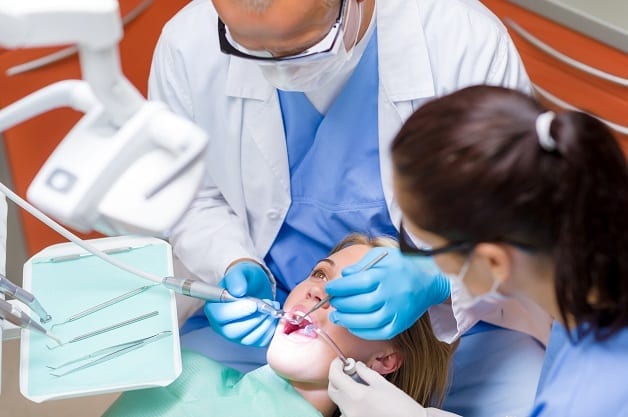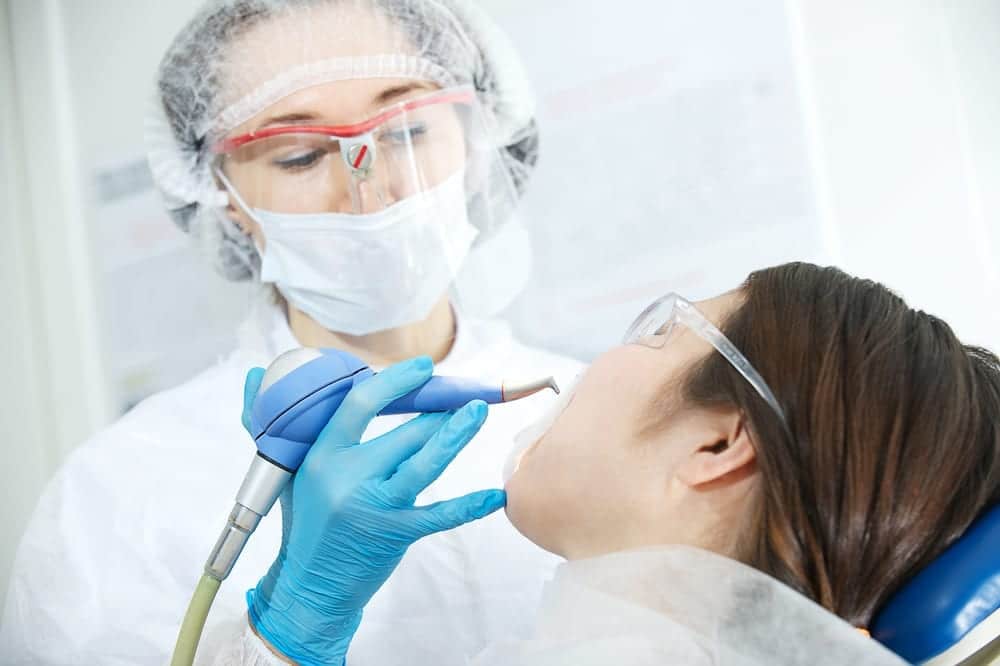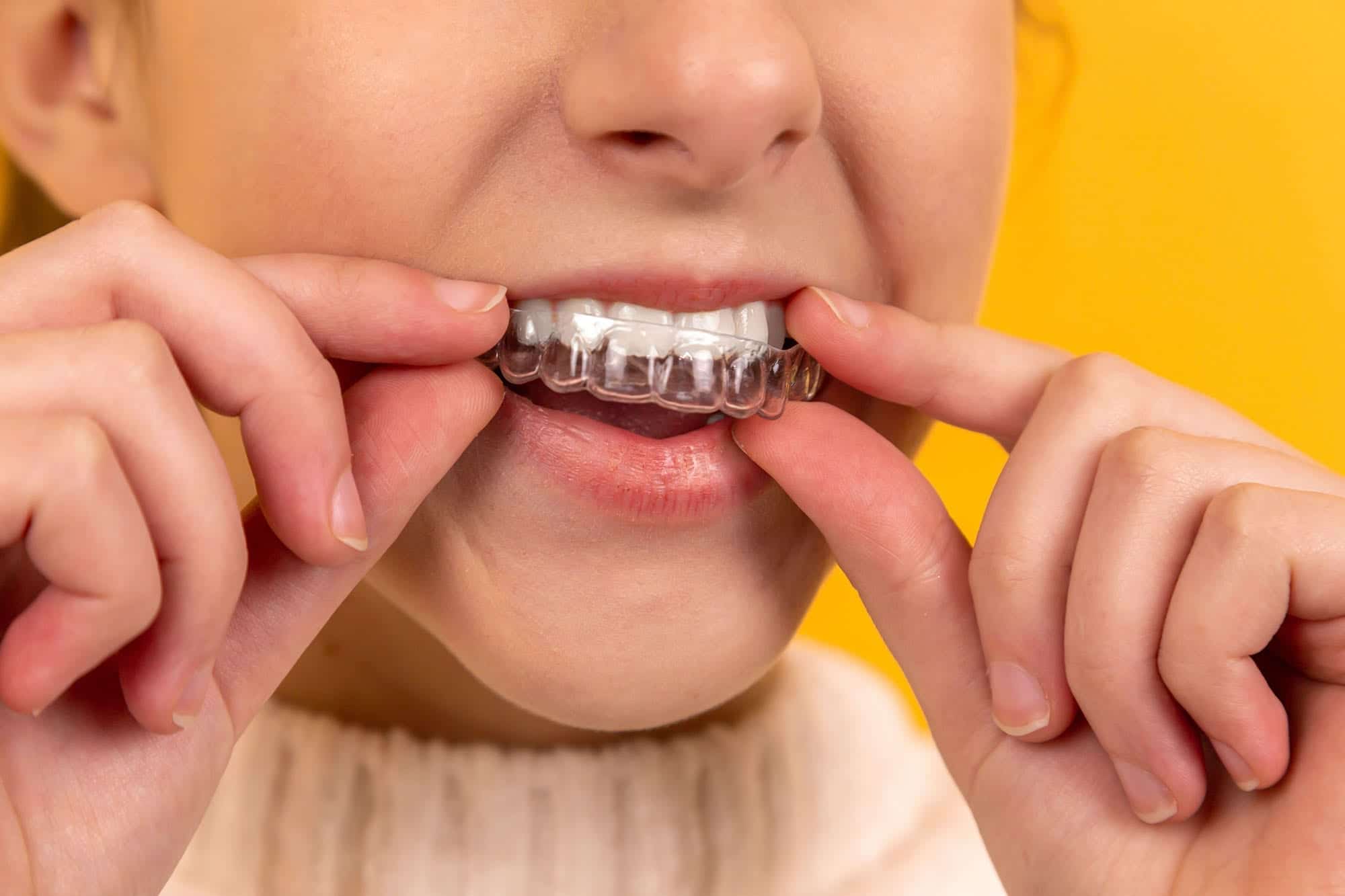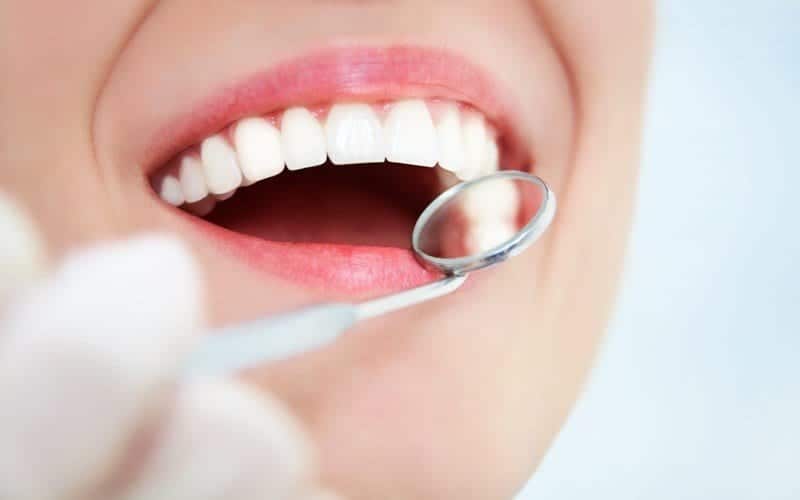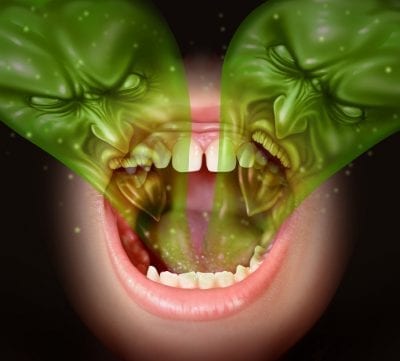Bad breath, also known as halitosis, is a condition wherein every breath you exhale has a pungent or unpleasant odor that typically originates from your mouth and caused by poor oral hygiene. Halitosis can be a chronic condition or something that occasionally happens.
You might be asking yourself, “How do I cure bad breath?” Here’s what you need to know in regards to that.
What Are the Symptoms of Bad Breath?

Here are the most common symptoms of bad breath:
- Dry mouth
- Sour taste in the mouth
- Unpleasant mouth odor
- White coating on the tongue
It’s quite simple to know if you have bad breath. Your friends and family may complain to you about it when they’re around you. Strangers might give you a larger amount of personal space, thus making you suspicious.
Or you may be aware of it yourself since you’ve been neglecting to brush your teeth after every meal, so it’s a natural consequence. Just cup your hand over your mouth to cover it, exhale, then smell the resulting stench if there’s any.
Aside from an unpleasant smell coming from your mouth, you can also taste something sour from your mouth as well. Leftover rotting food in between your teeth as you floss can also give off a stench. Just smell the floss afterwards to find out for yourself.
This should be enough of an impetus for you to start brushing your teeth every day!
What Are the Causes of Bad Breath?
Here are the typical culprits in regards to bad breath:
- Disease
- Dry mouth
- Acid reflux
- Severe dieting
- Food particles that rot in your teeth
- Infections (particularly respiratory ones)
- Not brushing your teeth or poor dental hygiene
- Food particles from stinky foods like onions and garlic
- Tobacco usage (from smoking cigarettes to chewing tobacco)
By not brushing your teeth and flossing after every meal, the food particles stuck in your teeth tend to rot and gather bacteria that can turn your mouth into a toilet (since its their waste products and rotting food that cause the stench).
So what causes bad breath even after brushing? Incidentally, it can also be caused by medications, dental diseases, oral infections, dry mouth, and as symptoms of health problems. This stink or smell of your mouth can also come from bad habits like smoking or consuming tobacco products (including chewing tobacco). It can also come from disease or the kind of food you eat.
Severe dieting can also serve as a cause of bad breath, resulting in acid reflux that also gives off an awful oral smell. Then again, acid reflux can itself serve as a symptom of several digestive diseases or conditions requiring immediate treatment.
How Do You Go about the Treatment of Bad Breath?
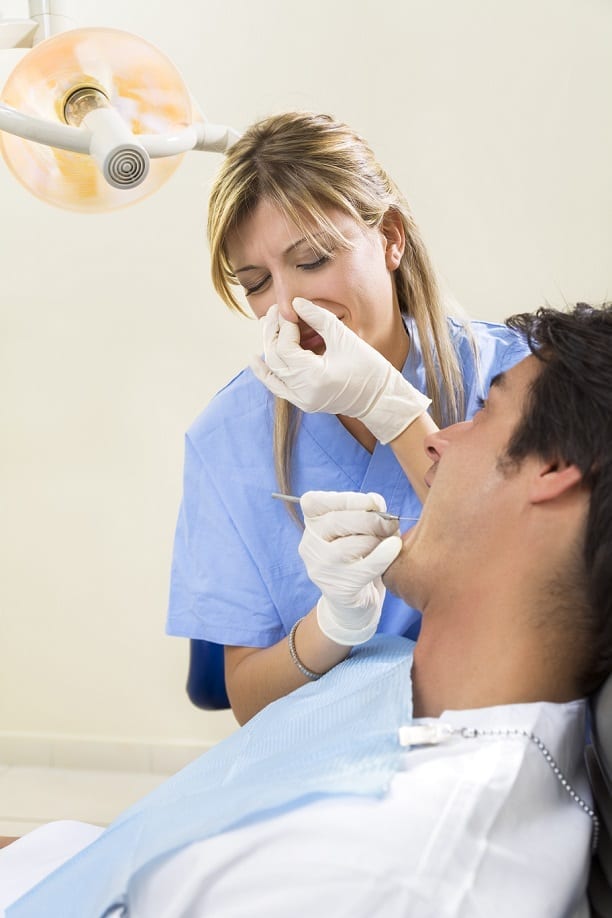
You can treat or cure halitosis by doing the following:
- Quitting smoking
- Gargling mouthwash
- Don’t use chewing tobacco
- Changing bad dental habits
- Eating breath mints or sugar-free gum
- Proper dental hygiene and brushing after every meal
In regards to how to cure bad breath permanently, it’s all about figuring out the cause of your bad breath first, then dealing with that factor to cure your halitosis. You can also have the underlying disease that’s causing your breath to stink treated as well.
While you’re at it, usually prevention is better than the cure. Therefore, avoiding eating foods that cause bad breath odors or anything that stinks in the first place can help your breath out a lot. You should avoid smoking altogether since it causes halitosis and the most terrible of diseases down the line.
You can try out natural remedies for your halitosis like chewing on parsley and mint. Mint in particular is effective, which is why so many OTC (over-the-counter) products make use of this ingredient (like breath mints, toothpaste, and mouthwash).
For the most part, the best bad breath home remedy is simply brushing your teeth. It cleans out your mouth free of such foods.
What Does the ADA Specifically Recommend?

According to the ADA (American Dental Association), the treatment of halitosis is dependent on what’s causing it. Therefore, it’s recommended that you do the following in order to beat bad breath.
- Regularly Brush Your Teeth and Floss In Between Them: Clean your teeth with your toothbrush and dental floss completely. Don’t forget to brush the tongue as well. This helps remove bacteria on its surface. Brushing the tongue can also assist with halitosis caused by anything you’ve eaten. Brushing your teeth isn’t enough to get rid of a lingering garlic stench, after all.
- Gargle with Mouthwash: Mouthwash is an excellent way to clean up your act and freshen up your breath. The liquid kills halitosis-causing bacteria and can even mask the bad breath stink with a fresh mint scent. However, it might not treat the underlying cause if it’s something more drastic than oral sanitation. For example, you need deep cleaning for periodontal disease.
- Sugarless Gum Chewing: Breath mints in the form of sugar-free candy or gum can mask your breath the same way gargling with an OTC mouthwash can. What’s more, it’s easier to bring along with you when you’re out and about. You can also use this chewing gum or candy to keep your mouth from becoming dry altogether, which is a symptom and source of bad breath.
- Keep Your Mouth Moist: Hydration through regular water drinking should also cover keeping your mouth moist. Aside from chewing sugarless gum or hard candy that’s sugarless, you can also keep your mouth moist by simply drinking water constantly. This stimulates saliva production, which kills odor-causing bacteria. If something else is causing your mouth to dry, consult your oral doctor.
- Have a Sensible Diet: Some food requires thorough chewing. This is the kind of food you should eat in order to keep your saliva flowing and the bacteria that’s turning your mouth into a toilet dead. Eat things like celery, carrots, apples, or most any healthy food that requires a lot of chewing and won’t leave a stink afterwards (like onions and garlic).
- Visit the Dentist for Checkups: Even after you’ve gotten rid of your halitosis, it’s important to see your dentist regularly. He can do a teeth cleaning or prophylaxis for you every six months to more thoroughly clean out your mouth. He can also be there to ensure that your braces or dentures (if you have any installed) are maintained and fitted properly.
- Avoid Smoking or Chewing Tobacco: Tobacco is a dangerous substance. It can lead to addiction, cancer, heart ailments, and respiratory problems. Most of all, its most immediate of symptoms is the development of bad breath. You have to fix this by either quitting smoking or chewing tobacco or never starting the habit in the first place. Avoid tobacco at all costs if you want to be free of bad breath.
When Should You See a Doctor about Your Bad Breath?

If you want to get rid of bad breath that won’t go away easily even after brushing, then sometimes you might have to seek the assistance of a healthcare professional. Maybe you’re suffering from acid reflux that isn’t easily cleaned out by gargling mouthwash or brushing your teeth, for example.
If observing proper oral hygiene isn’t working when it comes to dealing with your bad breath symptoms, then perhaps your problem is bad breath from the stomach or bad breath from the throat. These conditions or symptoms are signals for underlying diseases that must be properly diagnosed by an oral doctor or dentist.
Seek the help of a professional to get proper halitosis treatment if your bad breath is accompanied by the following:
- Mouth sores
- Fever or fatigue
- Persistent dry mouth
- White spots on the tonsils
- Broken teeth or dental pain
- Difficulty or pain when swallowing or chewing
Alternatively, you can develop bad breath because you’re taking a new medication or you’ve just gone through a recent dental surgery (which could’ve resulted in an infection that actually causes a smell). Remember to talk to your doctor in case any other symptoms were to develop that’s of any concern.
Which Doctors treat Halitosis Exactly?
Although you might think a dentist mostly or only handles teeth, he should be the first person you should see in order to deal with your bad breath. His clinic should be your first stop before going to any specialists and whatnot.
- The Appeal of a Dentist: The dentist is usually the person who recommends the specialists when push comes to shove. If the dentist diagnoses that you have a healthy mouth, gums, and teeth, you’ll then be referred to a physician in order to do some tests on you. Your bad breath may instead be an underlying problem that requires specialist assistance.
- A Periodontist to Treat Periodontal Disease: For example, if you’re suffering from periodontal disease, a periodontist is what you need to deal with it. You can also get further assistance from the dentist in the form of deep cleaning to save the rest of your teeth that probably got loose as your condition progresses.
Periodontal disease happens when gingivitis worsens, pockets of bacteria form within the spaces between teeth, resulting in them loosening among other things. Another consequence of a bacteria-ridden mouth and gums is, naturally, bad breath. A periodontist is the kind of dentist that specializes in dental implants and gum disease, by the way.
- An Orthodontist to Clean Out Braces: Braces are used to straighten out crooked teeth gradually. These devices tend to gather food particles in between their spaces, resulting in bad breath from rotting food and the spread of bacteria.
Your orthodontist should clean out the food stuck in these braces. This specialist dentist also specializes in cleaning out and adjusting stinky braces full of leftover food particles.
- Pediatricians Can Handle Childhood Halitosis: If your baby, toddler, or young prepubescent kid has bad breath that’s not caused by lack of dental hygiene, then he or she might require pediatrician assistance to diagnose medical problems or infections. The family dentist can also be involved.
- A Doctor to Treat Halitosis as a Symptom of Something Else: If you’re an adult who’s suffering from bad breath that’s not hygiene-related, you also need to get your dentist to recommend a doctor to do tests on you. The right healthcare professional should help out diagnose your digestive, intestinal, throat, or oral issue.
How Do Doctors and Dentists Diagnosis of Halitosis?
Bad breath for the most part doesn’t require a doctor or dentist to diagnose it. If your breath stinks, you have bad breath. You’ll need the assistance of the above mentioned doctors and specialists when you have chronic bad breath or halitosis, though. Halitosis that doesn’t go away after much brushing, flossing, and mouthwash gargling requires the help of experts.
You need to get tested by the right doctors and dentists in order to uncover the underlying cause behind your halitosis condition. It could be the symptom of another disease. The healthcare professional will be examining your mouth to search for signs of gingivitis, periodontitis, or any other gum disease.
They’ll also be there to see if you’re suffering from infections and/or dry mouth that might be behind why your breath stinks.
What Are the Potential Diseases That Can Cause Bad Breath?
If health problems are behind your bad breath, then you need to first find out what condition you’re suffering from. Have a doctor or dentist diagnose you for GERD (gastroesophageal reflux disease or acid reflux), diabetes, sinus infection, and so forth. To treat the halitosis symptom, you need to deal with the underlying disease.
If it’s instead medication that’s making your breath stink, ask your doctor if you can get an alternative medicine that doesn’t have such a side effect. Otherwise, ask him for a remedy to alleviate the halitosis. Don’t stop taking the medication until you’ve discussed with the doctor if it’s okay.
Sometimes, a dentist can prescribe a sufferer of dry mouth (xerostomia) with artificial saliva. Yes, that exists.
Thantakit International Dental Center is Thailand’s longest established dental center. Situated in Bangkok, our clinic is renowned across the world as a destination for world-class dentistry, with most of our patients flying to us from Australia.
Contact us today to get a FREE dental consultation.



